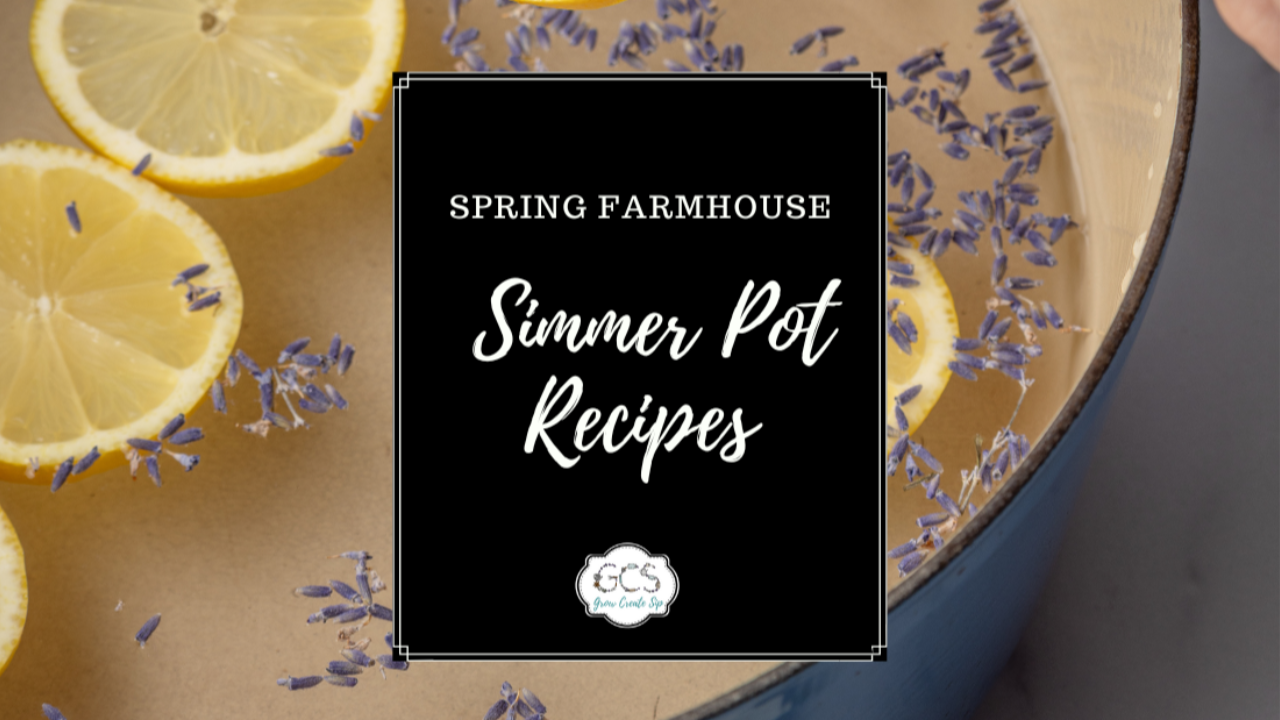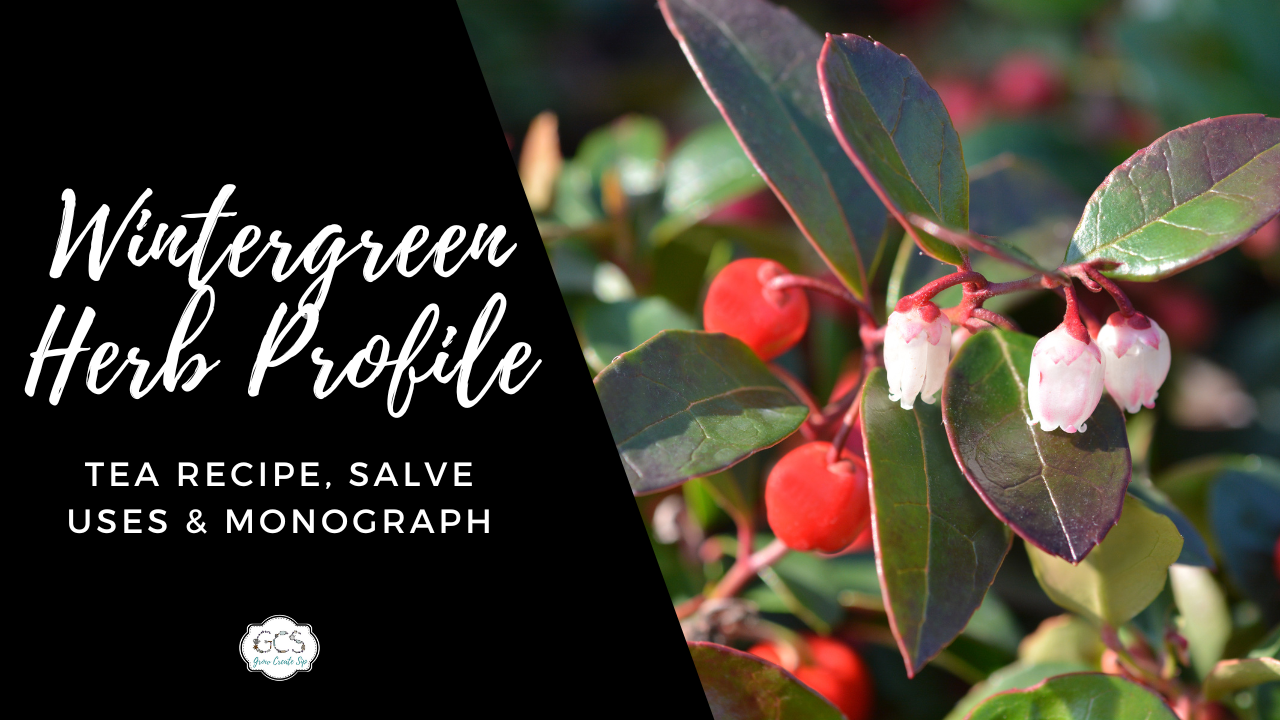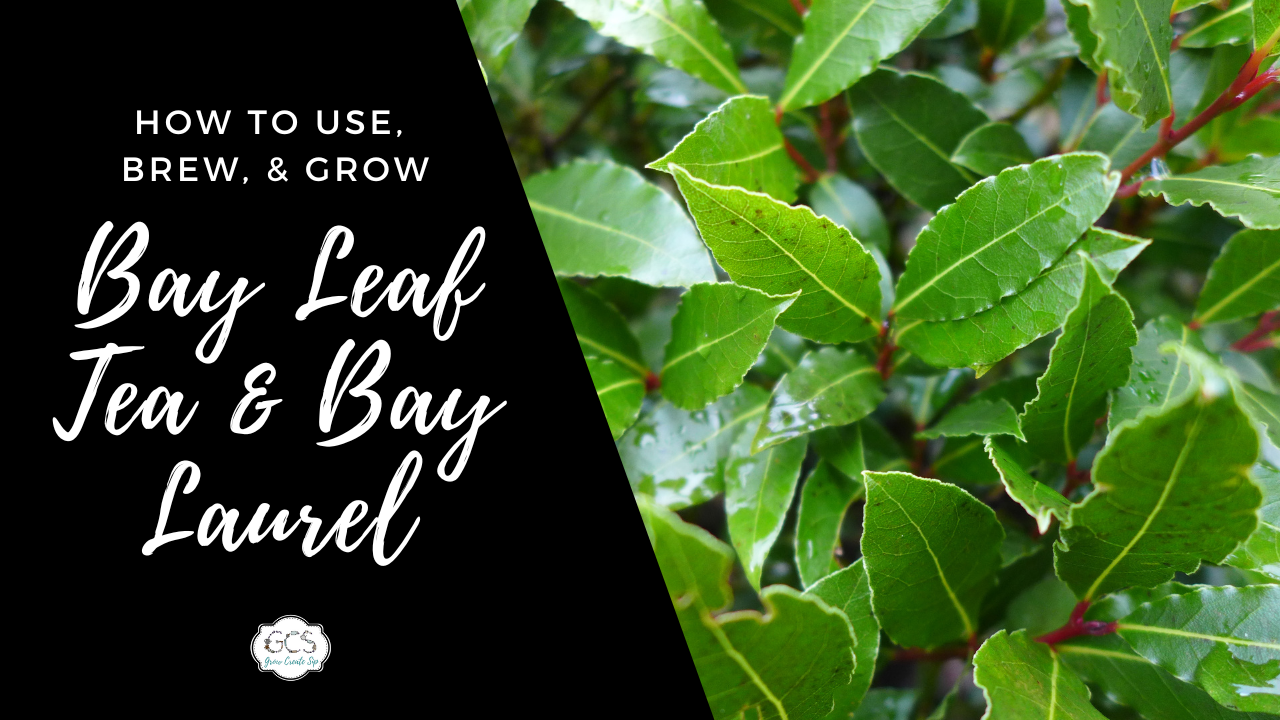The Best Menopause Tea: Hot Flash Relief and More
May 07, 2024
If you’ve been experiencing menopause symptoms and want to treat them the natural way, menopause tea is a wonderful option! It makes sense… we grow our own food and bake our own bread, so why wouldn’t we make our own natural remedies too?!
You can easily make tea for menopause symptoms that may have you feeling down (or hot, am I right?) by combining specific herbs that you can grow right in your garden. Plus, who doesn't like to cozy up to a warming cup of goodness during this transformative time? (or maybe relax with an iced cup!)
Menopause tea offers natural support of symptoms like hot flashes, mood swings, and more! Explore the most effective herbs for managing menopause symptoms and why brewing them into tea is the ideal method. Learn how to blend a menopause tea that tastes great with flavor pairings and blending tips, plus discover the benefits of nutritive herbs and our favorite menopause tea recipe!

Photo by Kayla Joy Creative
The Legal Stuff
This blog is provided by St. Fiacre's Farm LLC for informational purposes only. It does not constitute medical advice, and you should always seek the advice of a qualified healthcare provider for any medical questions or concerns. Please note that we may earn a small commission on any purchases you make through our affiliate links, at no additional cost to you. Thank you for your support!
Why Tea is the Best Way to Consume Herbs
Tea is the best way to consume herbs for their medicinal benefits for several reasons! When you brew tea, you extract all of the good stuff from the herbs, making it easier for your body to absorb and use them. Herbal teas are simple to make and familiar to most people. You can also make them taste fabulous without the "medicine" flavor. Not to mention, menopause tea will help keep you hydrated — which will also support the balance of your hormones! — and keep you cool if you have hot flashes.
Loose-leaf teas that you blend at home or get from a loose-leaf tea company will have a higher quality herb, as teas in bags or sachets are usually dust from the bottom of the barrel. The more area the surface of an herb is exposed, the quicker the quality goes downhill. Friends don't let friends drink tea dust.
Not to mention, the tea bags themselves are usually filled with microplastics and bleached before use. Guess where the bleach from the tea bag goes when it is steeped in hot water? Yup! It goes into your cup and then into your liver, adding more work for your liver. When we are drinking herbal teas for their medicinal benefits, we really don't want to add bleach and microplastics to the mix.
Once you’ve checked off those boxes on your to-do list at the end of the day, there isn’t anything much better than a good sit down and a cuppa tea.

The Best Herbs for Menopause
Before you can start blending your own menopause tea, you need to learn what herbs to use! Every menopause symptom is different, and different herbs treat different symptoms. That means starting with how you’re feeling, then picking your herbs. The herbs for one woman may not look the same as the other. If you think about the Winnie the Pooh characters you will recall that Tiger was not the same as Piglet. In herbalism, both characters require many different herbs because their bodies and habits are very different, and they react differently to different herbs. Some women may really be prone to hot flashes, while others perhaps have more issues with insomnia.
Here are some herbs to start with. I recommend taking a deep dive into each herb through an herbal monograph so that you can get to know it and see if it fits your body's needs.
- Hot flashes: Sage, black cohosh, and lemon balm
- Mood swings and irritability: Chaste berry tea (Vitex)
- Insomnia: Valerian root
- Hormonal imbalance: Licorice root and fennel
- Bone health: Oatstraw
- Pelvic health: Raspberry leaf
- Overall well-being: Elderflower
When you make your own teas for menopause, you need to create your teas using the tea pyramid method which is made up of a base, middle, and top notes. Use your primary herbs in the base, nutritive herbs in the middle, and catalyst herbs in the top.
We recommend using the menopause herbs listed above in the middle of your pyramid as they are nutritive herbs (literally, herbs with nutrients). And, as helpful as they are, sometimes they don’t taste great. Use better-tasting herbs like peppermint, tulsi/holy basil, or chamomile as your base. Tea is only good if it goes down! We’ll share more advice on the best flavor pairings later.

More Information on Nutritive Herbs for Menopause
We have a full guide on the best herbs for menopause, but the information bares repeating here! Along with the herbs listed above, there are a few other important ones to point out as you prepare to make your own tea blends.
Nettle, for example, is rich in vitamins A, C, and K, as well as minerals like magnesium, calcium, and iron. All of the above can help with bone health and hormone balance. Oatstraw is packed with vitamin B, silica, and calcium as well, and could also support your bone health.
These are just a few more nutritive herbs to try in your blends. As a note, neither nettle nor oatstraw is known for their taste, so you want to use them in the middle of your tea pyramid. Pair them with a flavorful primary herb and you won’t even notice them!

How to Make Tea for Menopause Taste Good
Some of the herbs used in teas for menopause can be a little, well, acquired when it comes to taste. But that doesn’t mean you can’t use them in tea! The key here is to blend using the tea pyrimid. Remember to use your primary herbs as a base and the nutritive herbs in the middle. Top it all off with your catalyst herbs that work to activate the others as well as add a bit of flare!
Here are some primary herb ideas:
- Peppermint: Refreshing, minty, and great for hot flash relief.
- Lemon balm: Also helpful for hot flashes and helps to bring calm.
- Chamomile: Calming, light, and can soothe insomnia. Has a floral flavor to it.
- Red raspberry leaf: It boasts a flavor similar to that of black tea and is the best option for pelvic health changes. Plus, it is caffeine-free!
- Tulsi/holy basil: Sweet and a little bit spicy, can be helpful for hot flashes, mood swings, and fatigue.
- Green rooibos: Herby and full of antioxidants, this herb can tame hot flashes, mood swings, and inflammation.
Pair these base herbs with the nutritive herbs that will help with your symptoms to create your own teas for menopause!
Catalyst Herbs and Top Notes
Catalyst and top-note herbs can be anything from a few rose petals to brighten up the tea blend visually to a bit of black or rainbow-colored peppercorns to add some kick and help those nutritive herbs make their way through your body and aid in absorption.
While we used, rose petals in our recipe below you could also use tulsi/holy basil as a top note (yep it's a base option as well!), or maybe a dash of cinnamon to aid in metabolic health or any other of the catalyst herbs that we talk about in our Medicinal Teas in Small Spaces E-Course.
Now that we have covered the tea pyramids and our options for menopause-supportive herbs, it's time to blend a tea that will calm the nerves and support your changing body.

Menopause Tea Recipe
Menopause Tea Frequently Asked Questions
What is the best thing to drink for menopause?
Herbal tea for menopause, which has been specifically crafted to alleviate symptoms, is the best thing you can drink. Blends containing herbs like lemon balm, black cohosh, chaste berry tea, valerian root, and oat straw are ideal! These medicinal herbs can help soothe hot flashes, insomnia, mood swings, and other menopausal discomforts the natural way.
What should you not drink during menopause?
During menopause, it’s best to avoid certain drinks that may make your symptoms worse. Caffeine and alcohol, in particular, can trigger hot flashes or interrupt sleep. Sugary drinks or carbonated beverages like soda may make mood swings worse as well. Opt for water and herbal teas instead!
What can actually worsen menopause symptoms?
Many things can worsen menopause symptoms. The most common include stress, caffeine, alcohol, spicy food, smoking, and not getting enough movement day to day. Try your best to manage your stress, exercise, and eat whole foods. And, don’t forget to brew herbal tea for menopause too!

Craft your Own Custom Blends for Menopause
You now have a step-by-step tea blend recipe for menopause as well as over 15 herbs as options for blending your own custom tea just how it fits you best! From peppermint to nettle, valerian to oat straw, there are many to choose from. If you want more tips on how to blend your own medicinal teas at home make sure to hop on our free tea blending workshop.
If you would rather just have the menopause teas (or even tinctures) ready to go for your use, make sure to check out the Hot as All Get Out Tea, Lady Hen O'Pause Dry Tincture Mix, as well as the Not Flashes Dry Tincture Mix.
It is exciting to have so many choices when it comes to natural menopause support! I'd love it if you would leave me a comment below and share with me what the hardest part of menopause has been for you.
Read on About Herbal Hormone Support
- Natural Remedies for Menopause
- Could Tea Help You Lose Weight?
- Acid Reflux & Fennel Tea for Indigestion
- Best Tea for Pregnancy and Breastfeeding
- Herbs for Mastering Caffeine Withdrawal & Coffee Headaches














